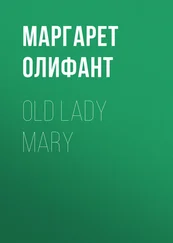Маргарет Олифант - Brownlows
Здесь есть возможность читать онлайн «Маргарет Олифант - Brownlows» — ознакомительный отрывок электронной книги совершенно бесплатно, а после прочтения отрывка купить полную версию. В некоторых случаях можно слушать аудио, скачать через торрент в формате fb2 и присутствует краткое содержание. Жанр: foreign_prose, literature_19, foreign_antique, на английском языке. Описание произведения, (предисловие) а так же отзывы посетителей доступны на портале библиотеки ЛибКат.
- Название:Brownlows
- Автор:
- Жанр:
- Год:неизвестен
- ISBN:нет данных
- Рейтинг книги:5 / 5. Голосов: 1
-
Избранное:Добавить в избранное
- Отзывы:
-
Ваша оценка:
- 100
- 1
- 2
- 3
- 4
- 5
Brownlows: краткое содержание, описание и аннотация
Предлагаем к чтению аннотацию, описание, краткое содержание или предисловие (зависит от того, что написал сам автор книги «Brownlows»). Если вы не нашли необходимую информацию о книге — напишите в комментариях, мы постараемся отыскать её.
Brownlows — читать онлайн ознакомительный отрывок
Ниже представлен текст книги, разбитый по страницам. Система сохранения места последней прочитанной страницы, позволяет с удобством читать онлайн бесплатно книгу «Brownlows», без необходимости каждый раз заново искать на чём Вы остановились. Поставьте закладку, и сможете в любой момент перейти на страницу, на которой закончили чтение.
Интервал:
Закладка:
“Miss is a-doing nicely, sir,” Mrs. Swayne answered, with solemnity; and this was what Jack considered a very impertinent reception of his kind inquiries. He was amused by it, and yet it put him a little out of temper too. “As if I could possibly mean the child any harm,” he said to himself, with a laugh; rather, indeed, insisting on the point that she was a child in all his thoughts on the subject; and then, as has been seen, the sudden introduction of young Powys and Mr. Brownlow’s calm adoption of the sentiment that it was his business to decide who was to be in the office, came a little hard upon Jack, who, after all, notwithstanding his philosophical indifference as to his sister’s heiress-ship, liked to be consulted about matters of business, and did not approve of being put back into a secondary place.
Thus it was with a sense of having done her duty by her new lodgers, that Mrs. Swayne paid her periodical visit in the afternoon to the inmates of the parlor, where the object of Jack Brownlow’s inquiries lay very much covered up on the little horse-hair sofa. She was still suffering from her sprain, and was lying asleep on the narrow couch, wrapped in all the shawls her mother possessed, and with her own pretty red cloak thrown over the heap. It was rather a grim little apartment, with dark-green painted walls, and coarse white curtains drawn over the single window. But the inmates probably were used to no better, and certainly were quite content with their quarters. The girl lay asleep with a flush upon her cheeks, which the long eyelashes seemed to overshadow, and her soft rings of dark hair pushed back in pretty disorder off her soft, full, childlike forehead. She was sleeping that grateful sleep of convalescence, in which life itself seems to come back—a sleep deep and sound and dreamless, and quite undisturbed by the little murmur of voices which went on over the fire. Her mother was a tall, meagre woman, older than the mother of such a girl ought to have been. Save that subtle, indefinable resemblance which is called family likeness, the two did not resemble each other. The elder woman now sitting in the horsehair easy-chair over the fire, was very tall, with long features, and gray cheeks which had never known any roses. She had keen black passionate eyes, looking as young and full of life as if she had been sixteen instead of nearly sixty; and her hair was still as black as it had been in her youth. But somehow the dead darkness of the hair made the gray face underneath look older than if it had been softened by the silvery tones of white that belong to the aged. She was dressed as poor women, who have ceased to care about their appearance, and have no natural instinct that way, so often dress, in every thing most suited to increase her personal deficiencies. She had a little black lace cap over her black hair, and a black gown with a rim of grayish white round the neck, badly made, and which took away any shape that might ever have been in her tall figure. Her hands were hard, and red, and thin, with no sort of softening between them and the harsh black sleeve which clasped her wrists. She was not a lady, that was evident; and yet you would not have said she was a common woman after you had looked into her eyes.
It was very cold, though the thaw had set in, and the snow was gone—raw and damp with a penetrating chill, which is as bad as frost—or worse, some people think. And the new-comer sat over the fire, leaning forward in the high-backed horse-hair chair, and spreading out her hands to the warmth. She had given Mrs. Swayne a general invitation to come in for a chat in the afternoon, not knowing as yet how serious a business that was; and was now making the best of it, interposing a few words now and then, and yet not altogether without comfort in the companionship, the very hum of human speech having something consolatory in it.
“If it’s been a fever, that’s a thing as will mend,” said Mrs. Swayne, “and well over too; and a thing as you don’t have more nor once. When it’s here , and there’s decline in the family—” she added, putting her hand significantly to her breast.
“There’s no decline in my family,” said the lodger, quickly. “It was downright sickness always. No, she’s quite strong in her chest. I’ve always said it was a great blessing that they were all strong in their chests.”
“And yet you have but this one left,” said Mrs. Swayne. “Dear, dear!—when it’s decline, it comes kind of natural, and you get used to it like. An aunt o’ mine had nine, all took one after the other, and she got that used to it, she’d tell you how it would be as soon as e’er a one o’ them began to droop; but when it’s them sort of masterful sicknesses as you can’t do nothing for—Deary me! all strong in their chests, and yet you have had so many and but this one left.”
“Ay,” said the mother, wringing her thin hands with a momentary yet habitual action, “it’s hard when you’ve reared them so far, but you said it was good air here?”
“Beautiful air, that’s what it is,” said Mrs. Swayne, enthusiastically; “and when she gets a bit stronger, and the weather gets milder, and he mends of his rheumatics, Swayne shall drive her out in his spring-cart. It’s a fine way of seeing the country—a deal finer, I think, than the gentry in their carriages with a coachman on his box perched up afore them. I ain’t one as holds by much doctoring. Doctors and parsons, they’re all alike; and I don’t care if I never saw one o’ them more.”
“Isn’t there a nice clergyman?” said the lodger—“it’s a nice church, for we saw it passing in the cart, and the child took a fancy to it. In the country like this, it’s nice to have a nice clergyman—that’s to say, if you’re church folks.”
“There was nothing but church folks heard tell of where I came from,” said Mrs. Swayne, with a little heat. “Them as says I wasn’t born and bred and confirmed in the church don’t know what they’re talking of; but since we come here, you know, along of Swayne being a Dissenter, and the rector a man as has no sympathy, I’ve give up. It’s the same with the doctors. There ain’t one as I haven’t tried, exceptin’ the homepathic; and I was turning it over in my mind as soon as Swayne had another bad turn to send for him.”
“I hope we shan’t want any more doctors,” said the mother, once more softly wringing her hands. “But for Pamela’s sake—”
“Is that her name?” said Mrs, Swayne; “I never knew one of that name afore; but folks is all for new-fashioned names nowadays. The Pollys and Betsys as used to be in my young days, I never hear tell of them now; but the girls ain’t no nicer nor no better behaved as I can see. It’s along o’ the story-books and things. There’s Miss Sairah as is always a-lending books—”
“Is Miss Sairah the young lady in the great house?” asked the stranger, looking up.
Mrs. Swayne assented with a little reluctance. “Oh! yes, sure enough; but they ain’t the real old Squires. Not as the old Squires was much to brag of; they was awful poor, and there never was nothing to be made out of them, neither by honest trade-folks nor cottagers, nor nobody; but him as has it now is nothing but a lawyer out of Masterton. He’s made it all, I shouldn’t wonder, by cheating poor folks out of their own; but there he is as grand as a prince, and Miss Sairah dressed up like a little peacock, and her carriage and her riding-horse, and her school, as if she was real old gentry. It was Mr. John as carried your girl indoors that time when she fell; and a rare troublesome one he can be when he gets it in his head, a-calling at my house, and knocking at the knocker when, for any thing he could tell, Swayne might ha’ been in one of his bad turns, or your little maid a-snatching a bit of sleep.”
Читать дальшеИнтервал:
Закладка:
Похожие книги на «Brownlows»
Представляем Вашему вниманию похожие книги на «Brownlows» списком для выбора. Мы отобрали схожую по названию и смыслу литературу в надежде предоставить читателям больше вариантов отыскать новые, интересные, ещё непрочитанные произведения.
Обсуждение, отзывы о книге «Brownlows» и просто собственные мнения читателей. Оставьте ваши комментарии, напишите, что Вы думаете о произведении, его смысле или главных героях. Укажите что конкретно понравилось, а что нет, и почему Вы так считаете.












